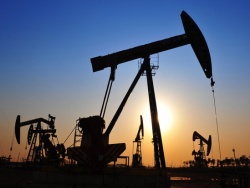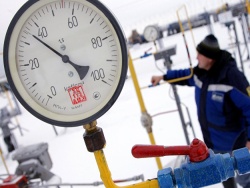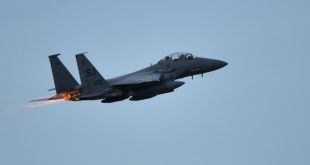
The U.S. Department of energy (EIA) yesterday announced its forecasts of world oil prices for the next two years. On the background of the fact that the leading oil producers in the world are trying to agree about a certain “freezing” of the level of production to stabilize prices, and that prices for raw materials over the last few days has almost approached $40 per barrel, the energy information Administration of the U.S. Department of energy published a report that predicts that the average price of Brent this year will amount to $34,28 per barrel, and in 2017 – $40. Moreover, these estimates even lower than the previous forecasts of the Ministry – $3 and $10 per barrel, respectively.
According to American analysts, the market is so flooded with oil that the US are waiting for lower prices in 2016 even taking into account the fact that America itself will reduce production this year by 700 thousand barrels – up to 8.7 million barrels per day. Next year America will reduce shale oil production by 500 thousand barrels – up to 8.2 million barrels per day, but the price for WTI will only rise by $6 to $40 per barrel.
The pragmatism of the USA in the assessments seem to be based on disbelief in “gentleman’s agreement” by freezing the level of oil production to restore prices, which have already agreed Russia, Saudi Arabia, Venezuela and Qatar. However, analysts believe that predictions of American energy is clearly undervalued, and doubt in the ability of the new oil cartel to keep production levels of “black gold” is greatly exaggerated.
“Forecasts are always ambiguous: each predicts, on the basis of their own interests. And so I, for one, think that this is clearly understated figure,” – said in conversation with the correspondent “Herald of Caucasus”, President of the Union of oil and gas Industrialists of Russia Gennady Shmal.
“In my opinion, nevertheless by the end of this year the price will go up to $40-45, and next year, probably to $50 per barrel. Everything will depend on so many factors. First, the U.S. has reduced its oil production over the past few months. It did have an impact on price, as you can see, around about $40 per barrel. I therefore believe that this forecast is unlikely: many countries, and now OPEC, realized that I need to think about how to affect the increase in rates, which, I think, will be somewhat above that which today is called the United States,” – said the expert.
As for whether the new oil cartel, which has already laid Russia, Saudi Arabia, Venezuela and Qatar, to reverse the situation, the analyst is confident that breaking it is not necessary – just a little is enough to hold the prey. “Even the fact that there will be such a meeting, has already caused a certain growth. I think that all countries are interested that the price was fair. I’m not saying it should be sky-high, but fair. Today that price is about $80 per barrel, given that most oil is produced offshore, where the costs are quite serious. Becomes more difficult the so-called recoverable reserves, the production of which requires additional costs. Affected and that the Chinese economy is slightly glitched. Although they plan to soon recover and increase oil production, but they, unlike us, use it heavily for development of petrochemical industry, for production of the chemical sector”, – said Gennady Shmal.
Analyst of Sberbank CIB Valery Nesterov also believes that such a pessimistic assessment of the U.S. Department of energy is related to the fact that the forecasters were divided into two camps: those who look more optimistic and see the price this year is $40-45, and those who believe that while there was nothing that could affect the imbalance of supply and demand, and it still persists. “Almost daily there is a flow of information. Tomorrow will be other estimates from Goldman Sachs, from the energy Ministry or the Ministry of economic development. In principle, this is a pessimistic view, caused by an imbalance of supply and demand, although he may be slightly decreased to 2 million barrels a day. Of course, here considered, to a certain extent and prognosis of the International energy Agency. It is believed that the market more or less counter-balanced only by the end of 2017. This balance will give a stable oil price and lower volatility, while oil price is very volatile. We see it rising now, know that the reason are and some opportunistic reduction of stockpiles, the U.S. and the expectations of the speculators, or just speculation on the fact that may be collected, and, apparently, gather the main exporters, and will be talking about how the price of oil to raise to a stable level of $40-50,” said the expert.
“They pay attention, of course, that the situation was serious enough for the producers of shale oil in the United States. Mining it has become quite steadily decline. It would seem that the decline in production is also supported in some sense modern and the weak short-term trend on the increase in the price of oil, we are now seeing up to $40. But still strong expectations that, as soon as oil stabilizes at $40-45-50, then definitely in the next few months will raise the production of this shale oil: after all, the USA has a very high reserve. Drilled wells a lot, and as soon as the price is right, they will start to fracturing jobs, and in a few months, production will go up again and again will press down the prices. The nearest and next year amid rising production in Iraq, Iran, some other countries, against the background of oil production in Russia will grow for the year, yet sustainable preconditions to ensure that the prices went up and stabilized at the level of $45-50, not yet. The next period – a period of high volatility. And the U.S. Department of energy is not the ultimate truth, they are also in these conditions, their predictions are characterized by high volatility. At one time they were one of the optimists at the prices, and now fell into the category of pessimists, but, as always, the truth is somewhere in the middle,” said Valery Nesterov.
“Of course, it is doubtful that the price of Brent crude oil will be $34 per barrel, because WTI is usually still cheaper. So cheap American oil is unlikely to cost: they have already started its exports, while in small quantities, but still symbolically American oil was delivered to Europe and to China. It also relieves stress on the internal American market and pushing prices is purely psychological. I think this forecast still should be classified as pessimistic,” assured the analyst.
Answering the question, what is the likelihood that Russia and other participants of the negotiations will not be able to reverse the situation on the market, the expert stressed that the change would strictly observe the agreement, which unambiguously included albeit symbolic, but production cuts. “But the prospect that all will agree about the reduction, almost to zero. If we reach an agreement on the stabilization of production at the current level, then this factor will play a role, but it will solve the problem all the same balancing market and soon – as early as next year. Here, when the amount of freezing will remain the overproduction of oil, will remain the Iran factor, and so the price, in General, will not be this low. We were afraid it would fall to $30, to $25. Now still have some positive role played by the organization of the meeting, these statements: the oil is still slightly stabilized a little and went up. But high hopes that this will remove the volatility and lead to sustained growth and stabilization in the region of $50, of course, nurture is not necessary”, – the analyst of Sberbank CIB.
“This kind of half-measure, because everyone understands that actually comply with the freeze in terms of big budget deficits, at a time when the average budget of middle East countries require to balance the price of oil at $100 a barrel, it will be very difficult. Still, if oil prices just will go up in price, the temptation is very great and will be for Nigeria, and Venezuela, and for other countries its prey raise and still somehow alleviate their serious financial situation. Monitoring still is a difficult thing, and it always goes behind for a few months. Therefore unlikely to be great trust between the two countries. While there will always be a promise: “Well, all bad, and I need you to take the opportunity to earn a bit more than others,” said Valery Nesterov.







